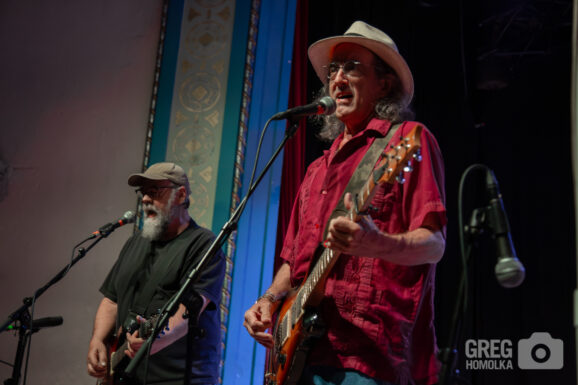[rating=7.00]
 Billy Talbot’s back story is fairly well known. At the age of 17 he moved to L.A. and then cast his fate with drummer Ralph Molina and guitarist Danny Whitten. After a series of false starts and unfortunate names, they eventually morphed into a band called the Rockets. After releasing one album on the White Whale Records label, they caught the attention of Neil Young, who had recently departed Buffalo Springfield for the sake of a solo career. Talbot, Molina and Whitten joined forces with Young, helped record his second album, dubbed themselves Crazy Horse, and later went on to back Young on some of the most influential efforts of his career.
Billy Talbot’s back story is fairly well known. At the age of 17 he moved to L.A. and then cast his fate with drummer Ralph Molina and guitarist Danny Whitten. After a series of false starts and unfortunate names, they eventually morphed into a band called the Rockets. After releasing one album on the White Whale Records label, they caught the attention of Neil Young, who had recently departed Buffalo Springfield for the sake of a solo career. Talbot, Molina and Whitten joined forces with Young, helped record his second album, dubbed themselves Crazy Horse, and later went on to back Young on some of the most influential efforts of his career.
In 1999, Talbot ventured out on his own, formed a band that had him listed at the top of the marquee and later released two albums, Alive in the Spirit World and its follow-up, On the Road to Spearfish. Neither album did especially well, and in 2014 he detoured into an outfit that was named Wolves, and released an EP shortly thereafter.
Now however, he’s back making music with the Billy Talbot Band and touting the group’s third effort, simply titled Dakota. All is well and good, but surprisingly enough it’s an album with a decidedly low-key lustre, far removed from the frenzy and fury that marks his work with Crazy Horse. The lessons learned from Young still come front and center, especially in Talbot’s fragile, mournful vocals and the slow sprawl that delineates such songs as “No Regrets,” “Coyote” and “Touching,” but given the fact that the upbeat entries are so few and far between — the playful prance of “Outer Space” offers the album’s only exception — Dakota seems a somewhat maudlin affair.
That’s not to say it doesn’t have its moments. The wistful violin and plaintive choir-like vocals that buoy “When I Awake” are especially touching, as is the delicate delivery of “Without a Sound.” However the fragile whisper of a vocal he affects on “Something Better” offers no reason to believe the track’s title has any real meaning. Next time around Talbot would be best advised to pick up the pace and save the sobriety for something clearly intended to be more sedate.









